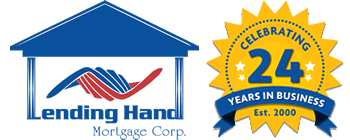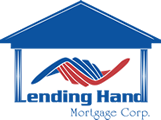Should I get a fixed rate or an adjustable rate?
On a fixed-rate loan, the interest rate doesn’t change over the life of the loan. An adjustable-rate mortgage (ARM) has an interest rate that is fixed for a set number of years and then afterwards will go up or down based on a market index such as the LIBOR. Consider factors such as the length of time you plan to stay in your home. Therefore, if you plan to stay in your home for many years, a fixed-rate may be the better choice for you. Otherwise, an adjustable-rate might be better if you plan to sell your home before the rate becomes variable, since initial ARM rates are typically lower than fixed-rate mortgages.
How can I get PreQualified?
Contact us to get started with your mortgage pre-qualification. We’ll need some preliminary information from you, review it, and determine whether you might qualify for a mortgage loan. Once you get your mortgage pre-approval, you’ll know how much you could borrow and can look for a new home with confidence. Sellers and realtors will also feel more comfortable knowing that they have a serious buyer.
What is the difference between interest rate and APR?
The interest rate is the cost to actually borrow the money disbursed in the loan. In addition to the interest, the APR (annual percentage rate) adds in some of the upfront costs of getting the loan, including points and lender fees.
What kind of information will I need to complete the application?
You will need to know both personal and financial information. You will be asked detailed questions and will possibly need to provide employment history for two years, current income including pay, commissions or bonuses, alimony or child support that you would like to be considered, dividends, asset information, and personal information such as your Social Security number, birthday, current address, and address history for the past 2 years.
Why should I refinance?
Get answers to some of your questions about refinancing your mortgage. We are happy to help when you are trying to decide when to refinance, or even if you should refinance your mortgage, this page and a Lending Hand Loan Originator can help you find the right answer.
There are numerous reasons customers refinance the loans they already have. Some of these are:
- To lower your monthly payment
- To lower your interest rate
- To switch from an adjustable rate to a fixed-rate, or vice versa
- To refinance for a higher amount to consolidate debt
- To make home improvements
- To shorten the length of the mortgage
Whatever your needs, we can help you determine whether to refinance and which loan is best for you.
Will I need a home appraisal?
In almost all situations, a home appraisal will be needed. The appraisal helps a lender determine the fair market value of the home you will mortgage with your refinancing. Since the property will be used as collateral against the mortgage, lenders want to make sure the house is worth at least as much as the loan being requested.
Should I pay my closing costs out of pocket when I refinance?
When you refinance, you can pay the fees out of pocket or sometimes roll them into the loan amount.
If you have the cash on hand, then consider paying the costs out of pocket. This will keep your monthly payment lower. If you roll the fees into the loan amount, this will increase your monthly payment, but the increase is usually nominal.
Are there any special requirements to get a reverse mortgage?
You must own a home, be at least 62, and have enough equity in your home. There are no medical requirements.
Our Loan Originators will conduct a financial assessment of every reverse mortgage borrower to ensure he or she has the financial capacity to continue paying mandatory obligations, such as property taxes and homeowner’s insurance, as required in the Loan Agreement.
What if I have an existing mortgage?
You may qualify for a reverse mortgage even if you still owe money on an existing mortgage. However, the reverse mortgage must be in a first lien position, so any existing indebtedness must be paid off. You can pay off the existing mortgage with a reverse mortgage, money from your savings, or assistance from a family member or friend.
For example, you owe $100,000 on an existing mortgage. Based on your age, home value, and interest rates, you qualify for $125,000 under the reverse mortgage program. Under this conditions, you will be able to pay off ALL the existing mortgage and still have $25,000 remaining to use as you wish.
When it comes to getting financing for a home, most people understand basic mortgages because they are straight forward. However, construction loans can be a little complicated for someone who has never built a new home before. Contact the Lending Hand’s Loan Originators to get help.
How do I get a construction loan?
Your first step in securing a construction loan should be to talk to our Lending Hand Loan Originators. The amount you may borrow will be an important part of your discussions with your builder in deciding what to include in your new home. He can also answer your questions about how construction loans are structured.
- To get qualified, you will need to provide your basic debt, income and asset information
- To apply for a construction loan, you will need to have a signed construction or purchase contract with your builder or developer. The contract will detail certain aspects that will impact your loan, such as:
- Contract amount, which includes construction and cost of land, if applicable
- Construction start and completion dates
What is an “All-in-One” or a “Single Close” construction loan? Why is it a good idea?
A “single close” construction loan is also your permanent financing. It is not just an interim construction loan, which would require a “take out” loan refinance at the end of construction to put the permanent financing in place.
This “take out” loan would involve an additional set of closing costs, you would have to provide new income and asset documentation to qualify, and qualification would not be guaranteed.
While USDA loans share many qualities with other government loans, such as FHA and VA, they also include many unique requirements and characteristics. This can be confusing for first time home buyers or borrowers who are unfamiliar with the mortgage application process. Contact the Lending Hand loan specialist to get help.
What is a USDA Home Loan?
A USDA Guarantee Home Loan is a government insured loan, which is issued and serviced by a lender.
Some of the advantages of USDA mortgages over FHA and Conventional loans are:
- Zero money down purchases
- Reduced mortgage insurance premiums
- Flexible credit criteria
- Seller paid closing costs
Do I need to be a first-time home buyer to qualify for a USDA Home Loan?
No, the USDA puts no restrictions on previous home ownership. However, there are income restrictions. Please call your Lending Hand Mortgage loan originator for determining eligibility.
Are there restrictions on where I can purchase a home using a USDA Mortgage?
Yes, the USDA requires the property to be located in a rural area. To determine which areas of the state are eligible for USDA financing.
The Lending Hand team has the knowledge and experience to guide you through the process getting a VA loan. It is our goal to simplify this process and offer you the confidence you need when entering into the VA home loan program.
Why is a VA Loan a better choice than a conventional loan?
VA Loans, for qualified military families and veterans, have many benefits not offered by conventional loans. Typically, VA Loans usually have more competitive rates than conventional loans. VA Home Loans also give you the ability to refinance to a lower rate without having to re-qualify for the loan, a process known as a VA Streamline Refinance, or IRRRL.
Does the VA offer home equity lines of credit (HELOCS)?
No, at this time the VA does not guarantee HELOCS. The VA will allow you to cash out on your existing property with a cash-out refinance.
How do I know how much I qualify for?
Qualification is based on many factors. Assuming your credit is sufficient to qualify, your income will be examined. To calculate your debt-to-income ratio, divide your monthly debt obligations by your total monthly earnings and multiply the result by 100. The best way to find out your exact debt-to-income ratio is to call a Lending Hand Mortgage Loan Specialist and have him or her crunch the numbers for you.
The Federal Housing Administration (FHA) has been helping Americans since 1934 to qualify for mortgages so they can become homeowners. Now part of the US Department of Housing and Urban Development, the FHA currently backs nearly 5 million mortgages.
Who can get a FHA loan?
To be eligible for the FHA-insured mortgage program you don’t need to have served your country like those borrowers seeking VA eligibility. Even still, FHA loans often work well for service members. Eligibility for a home mortgage endorsed by the Federal Housing Administration simply requires borrowers to legally live and work in the United States of America.
FHA loans are ideal for people with less-than-perfect credit histories. This often means people who simply have not had the chance to establish much of a credit history, but it can also mean people who have had some credit problems in the past.
I have a bankruptcy in my past. Can I still qualify for an FHA loan?
Bankruptcy does not generally disqualify applicants from FHA loans, as long as they have established responsible payment habits since the bankruptcy. Generally, that takes two years after the discharge of a Chapter 7 bankruptcy, and one year after the payout period for a chapter 13 bankruptcy.
I'm still paying off my student loan. Will this affect my ability to qualify for an FHA loan?
That depends on your situation, but having a student loan outstanding should not necessarily prevent you from getting an FHA loan. It is important that you be up-to-date on your loan payments, but beyond that the lender will look at your income in relation to your student loan payments and other financial obligations to determine whether you have the ability to repay the proposed mortgage.
Will I be able to refinance an FHA loan?
Yes, in fact the FHA offers a program known as Streamline Refinancing which minimizes the documentation needed to refinance FHA loans if the mortgage is up to date and the refinancing would either reduce monthly payments or change the loan from adjustable to fixed interest rates


 Some of life's hardest financial decisions include buying a home, refinancing a mortgage, or obtaining a home equity loan.
Some of life's hardest financial decisions include buying a home, refinancing a mortgage, or obtaining a home equity loan. 
